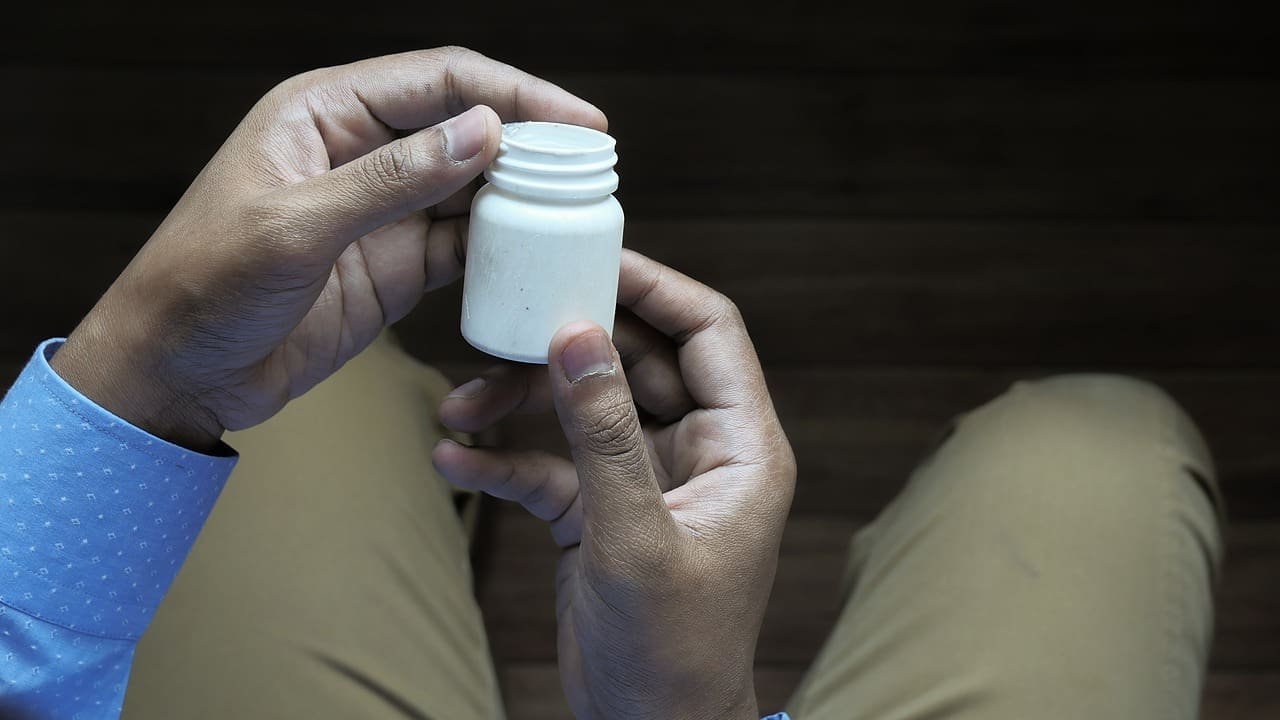
At Liv Hospital, we know how tough it is to deal with osteoarthritis. It really affects your daily life. We’re here to help you find the best ways to ease knee joint pain. We’ll share the latest research and expert advice with you.
We’re looking at evidence-based supplements that might help with osteoarthritis symptoms. With so many choices, it’s key to trust credible sources and medical experts.
We want to show you 12 clinically-backed supplements. They could help you find lasting relief from knee joint pain.
Key Takeaways
- Understanding the role of supplements in managing osteoarthritis symptoms.
- Exploring the latest research on effective osteoarthritis treatments.
- Identifying the most promising supplements for knee joint pain relief.
- Learning how to incorporate these supplements into your treatment plan.
- Discovering the benefits of a complete approach to osteoarthritis management.
The Science Behind Osteoarthritis and Knee Joint Degeneration

Understanding osteoarthritis is key to managing knee health. This disease breaks down cartilage, causing knee pain and less mobility. We’ll look at how it affects cartilage and if supplements can help.
How Osteoarthritis Affects Knee Cartilage
Osteoarthritis damages knee cartilage, which is vital for smooth movement. When cartilage breaks down, bones rub together, causing pain and stiffness. The breakdown of cartilage is a key part of osteoarthritis, making it important to manage it well.
The Role of Supplements in Managing Joint Pain
Supplements like glucosamine and chondroitin are used to support knee health. They aim to reduce joint pain and slow osteoarthritis. We’ll check if they really work.
Evaluating Scientific Evidence for Joint Supplements
When looking at supplements for osteoarthritis, it’s important to check the scientific evidence. We’ll review studies to see if supplements help with knee degeneration and pain.
Glucosamine: Foundation Supplement for Cartilage Support

Glucosamine is a key supplement for those looking to support cartilage health. It helps reduce knee pain caused by osteoarthritis. We’ll look at the various forms of glucosamine, its effectiveness, and the best dosages for benefits.
Sulfate vs. Hydrochloride Forms: Which Works Better?
Glucosamine comes in two main types: sulfate and hydrochloride. Studies show that glucosamine sulfate might be better for knee pain. This is because it’s absorbed and used by the body more effectively.
Clinical Evidence for Knee Pain Relief
Many studies have looked into glucosamine’s effect on knee pain from osteoarthritis. The research indicates that glucosamine can help reduce pain and improve movement in people with knee osteoarthritis.
Recommended Dosages and Timing for Maximum Benefit
The usual dose of glucosamine is 1,500 mg daily, split into three doses. It’s important to talk to a healthcare professional to find the right dose and timing for you.
Knowing about the different glucosamine forms, its effectiveness, and dosages helps people make smart choices. This way, they can better manage their osteoarthritis with glucosamine.
Chondroitin Sulfate: Enhancing Joint Cushioning and Mobility
Chondroitin sulfate is a key part of cartilage, vital for joint health. It’s a natural compound studied for its benefits in joint cushioning and mobility. This is important for people with osteoarthritis.
How Chondroitin Protects Existing Cartilage
Chondroitin sulfate is key to keeping cartilage strong. It helps keep cartilage full of water, which is essential for its cushioning. This protection slows down osteoarthritis.
Mechanisms of Action: It stops enzymes that break down cartilage. This reduces cartilage damage.
Research on Pain Reduction and Function Improvement
Many studies have looked at chondroitin sulfate’s effects on pain and function in osteoarthritis. A big study found it greatly reduced pain and improved function compared to a placebo.
| Study | Sample Size | Outcome |
|---|---|---|
| Study 1 | 100 | Significant pain reduction |
| Study 2 | 200 | Improved functional ability |
| Study 3 | 150 | Reduced cartilage degradation |
Synergistic Effects When Combined with Glucosamine
Chondroitin sulfate and glucosamine together improve joint health. This combo offers more benefits than each alone, like less pain and better function.
Always talk to a healthcare professional before starting any supplements. This includes chondroitin sulfate, to find the right treatment for you.
Collagen Supplements: Rebuilding the Joint Matrix
Collagen supplements are seen as a good way to fix the joint matrix in osteoarthritis patients. The joint matrix, mostly made of collagen, is key for joint health. As osteoarthritis gets worse, the matrix breaks down, leading to pain and less mobility.
Undenatured Type II Collagen: The Research-Backed Form
Undenatured type II collagen has been studied a lot for its benefits in osteoarthritis. It might help control the immune system and lower inflammation. This could ease symptoms.
Hydrolyzed Collagen for Improved Absorption
Hydrolyzed collagen is another form that looks promising. It’s more easily absorbed, helping repair and keep the joint matrix healthy.
Effective Dosing Protocols for Knee Osteoarthritis
Finding the right dose is key for collagen supplements to work best. Studies show 2-10 grams of collagen hydrolysate or 40 mg of undenatured type II collagen daily might help knee osteoarthritis.
Knowing about different collagen types and their doses helps doctors give better advice. This could improve how osteoarthritis is managed.
MSM (Methylsulfonylmethane): Sulfur Compound for Pain Relief
MSM is a natural sulfur compound that might help with osteoarthritis symptoms. It has been studied for its ability to lessen joint pain and swelling. This makes it a good supplement for those with knee osteoarthritis.
Mechanism of Action in Reducing Joint Inflammation
MSM’s main way to fight joint inflammation is through its anti-inflammatory properties. It stops the production of pro-inflammatory cytokines. These molecules cause inflammation. By stopping these cytokines, MSM can help reduce the inflammation that causes osteoarthritis pain and worsening.
Evidence-Based Benefits for Knee Mobility
Research shows that MSM can make knee movement better and lessen pain in people with osteoarthritis. Studies found that taking MSM can greatly improve how well people can do daily tasks and lower pain levels. This makes it easier for patients to go about their day.
Safety Profile and Possible Side Effects
MSM is usually safe when taken as directed. Mild side effects might include stomach upset or headaches. But, it’s key to talk to a healthcare provider before starting MSM, if you have health issues or are on other meds.
We suggest talking to a healthcare professional about adding MSM to your osteoarthritis treatment plan. Knowing the benefits and possible side effects helps make informed choices about using MSM to ease symptoms.
Curcumin and Turmeric: Potent Natural Anti-inflammatories
Curcumin, found in turmeric, is known for its anti-inflammatory properties. It’s a key supplement for those with osteoarthritis. Its strong anti-inflammatory effects make it very useful.
Bioavailability Enhancers: Black Pepper and Lipid Formulations
To get the most out of curcumin, we need to boost its bioavailability. Black pepper extract, specially piperine, greatly increases curcumin absorption. Lipid formulations also help by making it easier for the body to absorb.
Clinical Studies on Knee Osteoarthritis Pain
Many studies have looked into curcumin’s role in easing knee osteoarthritis pain. They show that curcumin can greatly reduce pain and enhance function in osteoarthritis patients.
Comparing Effectiveness to NSAIDs
Curcumin’s effectiveness is compared to NSAIDs in research. It’s as good as some NSAIDs in fighting pain and swelling, but with fewer side effects. This makes curcumin a great natural option for osteoarthritis symptoms.
Vitamin D: Critical Nutrient for Joint and Bone Health
Vitamin D is key for bone health, but it’s also vital for joint health. It plays a big role in keeping our muscles and bones strong.
Connection Between Vitamin D Deficiency and OA Severity
Research shows that vitamin D deficiency can make osteoarthritis worse. People with low vitamin D levels often have more joint pain and damage.
Optimal Blood Levels for Joint Protection
Keeping optimal blood levels of vitamin D is important for protecting joints. The best range is usually 20 to 40 ng/mL. Some studies say levels up to 60 ng/mL might help even more.
D3 vs. D2: Choosing the Right Form
When taking vitamin D supplements, picking the right type is key. Vitamin D3 (cholecalciferol) is better than D2 (ergocalciferol) for keeping blood levels right. D3 is also easier for the body to absorb, which is good for bones and joints.
Knowing how vitamin D affects joints helps us take care of our muscles and bones better.
Vitamin C: Essential for Collagen Synthesis and Joint Repair
Vitamin C is key for more than just fighting off infections. It’s also vital for making collagen and fixing joints. Collagen is a main protein in our connective tissue, keeping our joints healthy. Vitamin C helps enzymes that stabilize and link collagen molecules together.
Antioxidant Protection Against Cartilage Damage
Vitamin C’s antioxidants protect cartilage from harm. Free radicals, unstable molecules, can damage cartilage and worsen osteoarthritis. Vitamin C fights these free radicals, keeping cartilage strong and joints healthy.
Research on Slowing Osteoarthritis Progression
Studies suggest vitamin C might slow osteoarthritis. They found that more vitamin C intake means less osteoarthritis. This makes vitamin C a good supplement for joint health.
Buffered vs. Regular Forms for Sensitive Stomachs
If you have a sensitive stomach, try buffered vitamin C. It’s less acidic and might prevent stomach upset from regular vitamin C.
| Form of Vitamin C | Gastrointestinal Tolerance | Bioavailability |
|---|---|---|
| Regular Vitamin C | May cause stomach upset | High |
| Buffered Vitamin C | Gentle on the stomach | High |
Omega-3 Fatty Acids: Systemic Anti-inflammatory Support
Omega-3 fatty acids are a great way to help with osteoarthritis. They are known for their anti-inflammatory effects. EPA and DHA, two types of omega-3s, are key in this fight.
EPA and DHA Ratios for Optimal Joint Benefits
The EPA to DHA ratio matters a lot in omega-3 supplements. A higher EPA might be better for fighting inflammation. Always talk to a doctor to find the right ratio for you.
Evidence for Reducing Inflammatory Markers in OA
Research shows omega-3s can lower inflammation in osteoarthritis. This can improve joint health and ease OA symptoms.
Marine vs. Plant Sources: Effectiveness Comparison
Marine sources of omega-3s, like fish oil, are more effective. They have more EPA and DHA. Plant sources, like flaxseed oil, have ALA, which the body converts to EPA and DHA, but not always efficiently.
Knowing about omega-3s can help people with osteoarthritis. They can make better choices about using these supplements.
Boswellia Serrata: Traditional Remedy with Modern Evidence
Boswellia serrata, or frankincense, has long been used in traditional medicine. It’s known for its anti-inflammatory properties, which are now being studied for osteoarthritis. We look into the benefits of this ancient remedy, supported by modern science.
AKBA Content: The Key Active Ingredient
The power of Boswellia serrata comes from its AKBA (acetyl-11-keto-β-boswellic acid). AKBA blocks pro-inflammatory enzymes, which helps reduce inflammation. Studies show that extracts with high AKBA content are most effective.
Clinical Trials on Knee Pain and Function
Clinical trials have looked into Boswellia serrata for knee pain and function in osteoarthritis. The findings are encouraging, with less pain and better joint function. These studies suggest Boswellia serrata could be a helpful addition to osteoarthritis treatment.
Standardized Extracts and Quality Considerations
When picking a Boswellia serrata supplement, look for standardized extracts with clear AKBA content. This guarantees the product’s strength and effectiveness. Always talk to healthcare experts to choose the best quality products.
S-Adenosylmethionine (SAMe): Complete Joint Support
S-Adenosylmethionine (SAMe) is a natural compound that helps keep joints healthy. It has been studied for its dual action on pain and cartilage health.
Dual Action on Pain and Cartilage Health
SAMe works in several ways to help joints. It boosts cartilage growth and cuts down inflammation. This helps reduce pain and keeps cartilage healthy.
Studies show SAMe can help with osteoarthritis symptoms. It’s a good choice for those looking for joint support.
Head-to-Head Comparisons with Pain Medications
Some research compares SAMe to pain meds. SAMe is as good as some NSAIDs in easing pain and improving function in osteoarthritis patients. For more on SAMe, check out WebMD’s guide.
Proper Dosing Schedule for Therapeutic Effects
The right SAMe dose is 400 to 800 mg daily, split into doses. Always talk to a doctor to find the best schedule for you. Sticking to a schedule is important for SAMe’s benefits on joints.
Best Supplements for Osteoarthritis: Creating an Effective Combination Approach
Combining supplements can greatly improve osteoarthritis management. It offers better relief and a better quality of life. Everyone’s needs are different, so what works for one may not work for another.
Synergistic Supplement Stacks for Enhanced Results
Using supplements together can create synergistic effects. This means the effects are stronger than when used alone. For example, glucosamine and chondroitin together can reduce joint pain more than either one alone.
“The combination of glucosamine and chondroitin has been shown to be effective in reducing osteoarthritis pain,” studies have found.
Personalized Approaches Based on OA Severity
Personalization is critical in managing osteoarthritis. The severity of the condition and individual factors should guide supplement choices. For severe cases, adding anti-inflammatory supplements like curcumin or omega-3 fatty acids can be beneficial.
Timing and Cycling Strategies for Long-term Use
Timing and cycling are key to getting the most from supplements. Cycling involves taking them for a few months, then taking a break. This keeps them effective over time. Taking supplements with food can also improve absorption and reduce side effects.
Conclusion: Integrating Supplements into Your Osteoarthritis Care Plan
Managing osteoarthritis well needs a mix of approaches. Adding supplements to your care plan can help a lot. It can ease symptoms and make life better.
A good plan includes lifestyle changes, medicines, and supplements. Supplements can help with pain, inflammation, and joint health. They support your joints and help you move better.
When making your care plan, think about the supplements we talked about. Glucosamine, chondroitin, and omega-3 fatty acids are good options. Always talk to your doctor first. They can help pick the right supplements for you and make sure they’re safe with your medicines.
Adding these supplements to your plan is a smart move. It helps you manage osteoarthritis better. Work with your doctor to make a plan that fits you. This way, you can keep your joints healthy and feel better overall.
FAQ
What are the best vitamins for osteoarthritis?
Vitamins D and C are key for healthy joints and managing osteoarthritis. Vitamin D helps with bone health. Vitamin C is important for collagen and joint repair.
How does glucosamine help with knee joint pain?
Glucosamine supports cartilage health. It can reduce knee pain and improve joint function in people with osteoarthritis.
What is the recommended dosage of chondroitin sulfate for osteoarthritis?
The usual dose of chondroitin sulfate is 800 to 1200 mg a day. It’s often taken in smaller doses throughout the day. It works best with glucosamine.
Can collagen supplements help rebuild knee cartilage?
Collagen supplements, like type II collagen and hydrolyzed collagen, may help joint health. They could even rebuild knee cartilage.
What are the benefits of MSM for osteoarthritis?
MSM has anti-inflammatory effects, which can reduce joint pain and improve knee mobility. It’s often used with other supplements for better results.
How does curcumin compare to NSAIDs for osteoarthritis pain relief?
Curcumin, from turmeric, has strong anti-inflammatory effects like some NSAIDs. But it might have fewer side effects and can be used long-term.
Why is vitamin D important for joint health?
Vitamin D is vital for bone health and may reduce osteoarthritis severity. Keeping blood levels optimal is key for joint protection.
Can omega-3 fatty acids help reduce osteoarthritis inflammation?
Yes, omega-3 fatty acids, like EPA and DHA, have anti-inflammatory effects. They can reduce inflammation and improve symptoms of osteoarthritis.
What is the role of Boswellia serrata in managing osteoarthritis?
Boswellia serrata, or frankincense, has anti-inflammatory properties. It may help reduce knee pain and improve joint function in osteoarthritis.
How does SAMe support joint health?
SAMe has effects on both pain and cartilage health. It’s a complete supplement for managing osteoarthritis.
Can combining multiple supplements enhance osteoarthritis management?
Yes, combining supplements can improve results. A personalized approach based on your needs can make supplements more effective.
What are the best supplements for knee cartilage repair?
Supplements like glucosamine, chondroitin sulfate, collagen, and vitamin C may help repair knee cartilage and improve joint health.
Are there any natural supplements for knee pain relief?
Yes, natural supplements like curcumin, Boswellia serrata, and omega-3 fatty acids can reduce knee pain and inflammation from osteoarthritis.
How can I choose the best supplement for my osteoarthritis?
Choosing the right supplement involves considering your needs and the severity of your osteoarthritis. Always consult a healthcare professional for the safest and most effective options.
What are the best vitamins for osteoarthritis?
Vitamins D and C are key for healthy joints and managing osteoarthritis. Vitamin D helps with bone health. Vitamin C is important for collagen and joint repair.
How does glucosamine help with knee joint pain?
Glucosamine supports cartilage health. It can reduce knee pain and improve joint function in people with osteoarthritis.
What is the recommended dosage of chondroitin sulfate for osteoarthritis?
The usual dose of chondroitin sulfate is 800 to 1200 mg a day. It’s often taken in smaller doses throughout the day. It works best with glucosamine.
Can collagen supplements help rebuild knee cartilage?
Collagen supplements, like type II collagen and hydrolyzed collagen, may help joint health. They could even rebuild knee cartilage.
What are the benefits of MSM for osteoarthritis?
MSM has anti-inflammatory effects, which can reduce joint pain and improve knee mobility. It’s often used with other supplements for better results.
How does curcumin compare to NSAIDs for osteoarthritis pain relief?
Curcumin, from turmeric, has strong anti-inflammatory effects like some NSAIDs. But it might have fewer side effects and can be used long-term.
Why is vitamin D important for joint health?
Vitamin D is vital for bone health and may reduce osteoarthritis severity. Keeping blood levels optimal is key for joint protection.
Can omega-3 fatty acids help reduce osteoarthritis inflammation?
Yes, omega-3 fatty acids, like EPA and DHA, have anti-inflammatory effects. They can reduce inflammation and improve symptoms of osteoarthritis.
What is the role of Boswellia serrata in managing osteoarthritis?
Boswellia serrata, or frankincense, has anti-inflammatory properties. It may help reduce knee pain and improve joint function in osteoarthritis.
How does SAMe support joint health?
SAMe has effects on both pain and cartilage health. It’s a complete supplement for managing osteoarthritis.
Can combining multiple supplements enhance osteoarthritis management?
Yes, combining supplements can improve results. A personalized approach based on your needs can make supplements more effective.
What are the best supplements for knee cartilage repair?
Supplements like glucosamine, chondroitin sulfate, collagen, and vitamin C may help repair knee cartilage and improve joint health.
Are there any natural supplements for knee pain relief?
Yes, natural supplements like curcumin, Boswellia serrata, and omega-3 fatty acids can reduce knee pain and inflammation from osteoarthritis.
How can I choose the best supplement for my osteoarthritis?
Choosing the right supplement involves considering your needs and the severity of your osteoarthritis. Always consult a healthcare professional for the safest and most effective options.
Références
- Arthritis Foundation : https://www.arthritis.org/health-wellness/treatment/complementary-therapies/supplements-and-vitamins/12-supplements-for-osteoarthritis
- American Academy of Family Physicians (AAFP) : https://www.aafp.org/pubs/afp/issues/2008/0115/p177.html
- PMC – PubMed Central : https://pmc.ncbi.nlm.nih.gov/articles/PMC8658017
- Oxford Academic (Rheumatology) : https://academic.oup.com/rheumatology/article/57/suppl_4/iv75/4916021
- Harvard Health Publishing : https://www.health.harvard.edu/blog/the-latest-on-glucosaminechondroitin-supplements-2016101710391




































